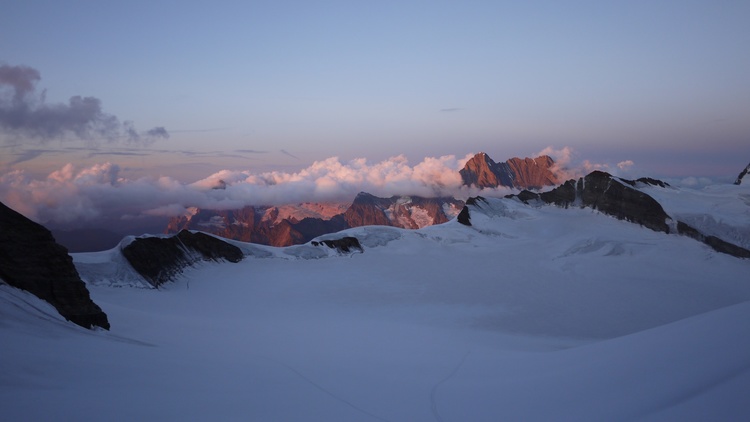Tonite I’m on the graveyard shift at Miratovac. It is -8c yet the trains and the refugees never stop. The camp is manned 24x7 by the Serbian authorities, IOM, Medecins sans Frontieres and the Catholic charities who provide food, and most of the others cover 18-20 hours of ever day.
We get text messages from the IOM teams in Greece and Macedonia when trains leave so we know how many are coming on each and approximately when they will arrive; we pass this along to everyone serving both camps.
We have a number of portable cabins for the staff, and several also for the migrants, where they can rest – and sleep – for a while before they walk the three kilometers to the buses for Presevo.
A colleague getting warm in our non-smoking cabin the previous day.
You get every kind of request you can imagine. Right after I arrived for my shift a Syrian family of 12 – from grandparents to grandchildren of perhaps 5 or 6 - arrived with a little girl in a wheelchair. We call a driver for the vulnerable but it will be a while; we only have one van at night. In the meantime it turns out the wheelchair has lost a bolt holding part of the suspension together; we see this reasonably frequently and have a box of parts to hand and fix her up. The family is incredibly grateful, especially the kids, who come up and hug my colleague and me, yelling “Thank you!” and “Happy New Year!” and the little girl who uses the chair has the most incredible smile – it lights up the entire cabin they're waiting for the van in.
Later a Syrian in his mid-20s arrives near the front entrance and asks me in excellent English to explain how Miratovac and follow on transportation to Presevo and onwards to Croatia works. Once I explain everything he settles his family in a cabin and comes back and spends the next four hours helping everyone arriving that speaks Arabic what I’ve told him and acting as a translator for questions. We do have some staff on hand that speak Arabic, but not enough that we can station people everywhere when a large number of arrivals come through.
He and I get to talking and he explains that his family started their journey in October 2014. The violence in Syria was so bad that it took more than six months to get to Turkey as they kept having to stop and hide until the civil war in their area calmed down so they could keep going. He wants to settle in the UK but knows this will be difficult and said he routinely volunteers as a translator as he proceeds along the route to a new European home. He hopes that once he and his family settle he can work somewhere that will let him help others who are arriving get settled too.
My colleagues ensure that his family get a ride the 3km to the buses for Presevo – we would have given him a ride too as thanks for his help but the van is already full with a trio of elderly ladies who have trouble walking very far.
You can look at this entire situation and get really upset – or you can remind yourself that anything you do for these people, any small kindness, has a magnified meaning to them. If you weren’t here doing it, that little kindness might not have happened at all.
In a way, I think the little things we do for total strangers matter far more than we realize, even in daily life. It is easy to be kind and thoughtful with those we know well, but how many of us really take the many small opportunities for little kindnesses throughout the normal day? I know I could do more, and when I don’t it is generally because I’m busy and let myself be persuaded that I have to rush off to whatever I’m doing. Sometimes it is true but it isn’t always. I hope when I get home this experience reminds me to stop, whenever I can, instead of continuing on by.
I feel incredibly privileged to be here. Spending your day helping people who are literally carrying everything they have to a totally alien continent with only a hope that life will be better is an incredible thing to witness.

